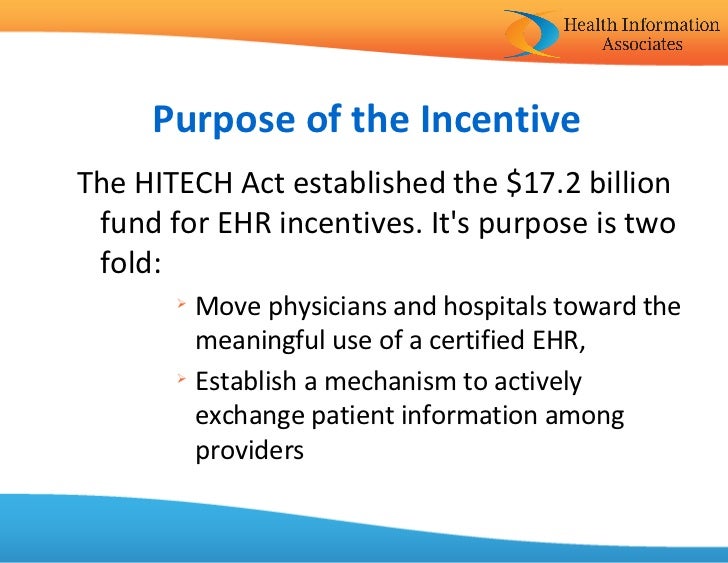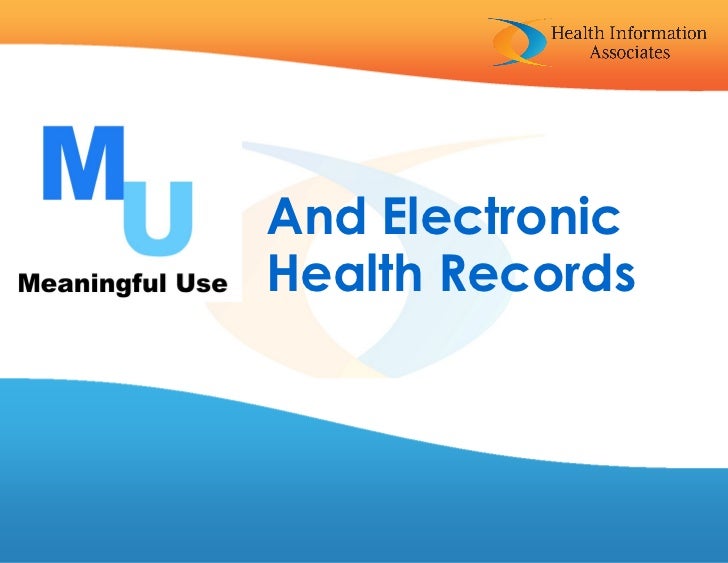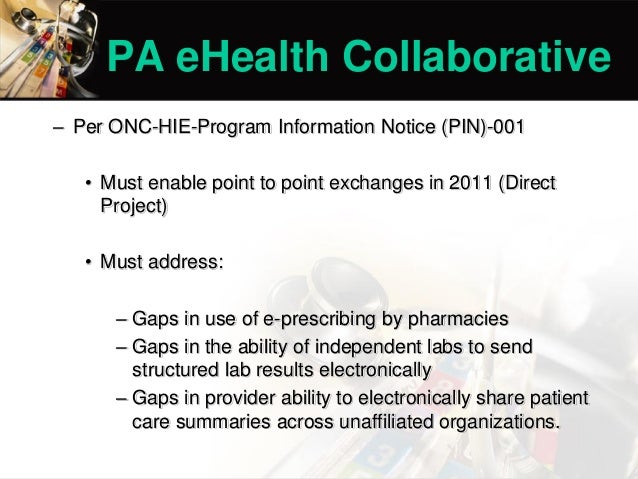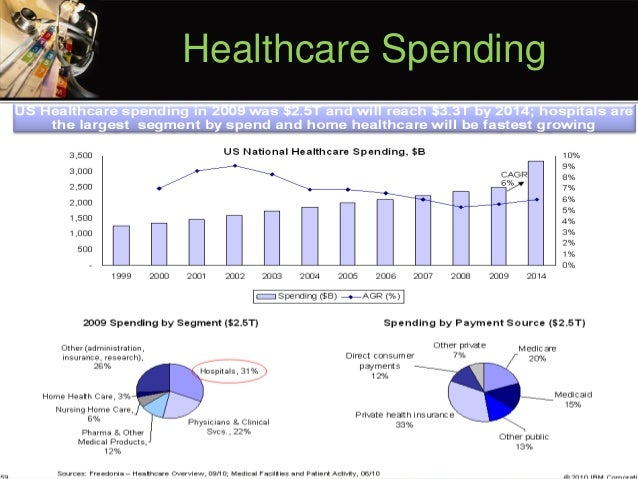External the hitech act supports the concept of meaningful use (mu) of electronic health records (ehr), an effort led by the centers for medicare & medicaid services (cms) and the office of the national coordinator for health it (onc). hitech proposes the meaningful use of interoperable electronic health records throughout the united states’ health care delivery system as a critical national goal. Hospitals with computerized systems that allow decision support, by component, 2012-2013 1. importance: clinical decision support (cds) systems, which provide appropriate, timely, patient-specific reminders and information, are essential to cope with the growth in medical knowledge. when implemented effectively, cds has been shown to improve quality and can be particularly effective for increasing appropriate use of evidence-based preventive services (wright, et al. 2015). 2. overall rate: in 2013, 56. 0% of hospitals had a computerized system for clinical decision support, an increase from 44. 9% in 2012 (data not shown). 3. trends: 3. 1. from 2012 to 2013, among hospitals with computerized systems that allow clinical decision support, the percentage with the following components improved: 3. 1. 1. drug allergy alerts, from 79. 0% to 84. 5%. 3. 1. 2. drug-drug interaction alerts, from 78. 3% to 83. 9%. 3. 1. 3. drug-lab interaction alerts, from 66. 6% to 72. 7%. 3. 1. 4. drug dosing support, from Learn everything you need to know about emr software before purchasing. connect with an advisor now simplify your software search in just 15 minutes. call us today for a fast, free consultation. for free software advice, call us now! +1 512.
A propublica report found more than 180 servers on which people’s medical records were available with minimal or no safeguards. an award-winning team of journalists, designers, and videographers who tell brand stories through fast company's. medical records use electronic meaningful Electronic health records (ehrs) can improve the quality and safety of health care. the adoption and effective use of health information technology can: help reduce medical errors and adverse events. enable better documentation and file organization. It’s a patient’s right to view his or her medical records, receive copies of them and obtain a summary of the care he or she received. the process for doing so is straightforward. when you use the following guidelines, you can learn how to.
Electronic medical record implementation will allow your health records to be in one digital file. learn about electronic medical record implementation. advertisement schoolchildren in the united states are often threatened with an ominous-. Electronic health records (ehrs) have emerged among health information technology as "meaningful use" to improve the quality and efficiency of healthcare, and health disparities in population health. in other instances, they have also shown lack of interoperability, functionality and many medical errors. In primary care, meaningful use consists of three stages: stage 1: transferring data to ehrs and. Electronic health records (ehrs) have emerged as a major medical records use electronic meaningful topic in health care and are central to the federal government's strategy for transforming healthcare delivery in the united states. recent federal actions that aim to promote the use of ehrs promise to have significant implications for laboratories and for pathology practices. under the hitech (health information technology economic and clinical health) act, an ehr incentive program has been established through which individual.
Meaningful Use Of Electronic Health Records Cdc


What Is Meaningful Use Healthit Gov

Hospitals with computerized systems that allow results viewing, by component, 2012-2013 1. importance: use of ehrs directly affects the communication and management of laboratory information in patient care, particularly results reporting and test order management (henricks, 2011). 2. overall rate: in 2013, 64. 1% of hospitals had a computerized system that allows results viewing, an increase from 58. 2% in 2012 (data not shown). 3. trends: 3. 1. from 2012 to 2013, among hospitals with computerized systems that allow results viewing, the percentage of hospitals with the following components increased: 3. 1. 1. laboratory reports, from 86. 2% to 89. 1%. 3. 1. 2. radiology reports, from 85. 0% to 86. 8%. 3. 1. 3. radiology images, from 82. 3% to 84. 2%. 3. 1. 4. diagnostic test results, from 73. 9% to 77. 5%. 3. 1. 5. consultant reports, from 69. 6% to 74. 4%. 3. 1. 6. diagnostic test images, from 66. 7% to 71. 3%. See full list on ahrq. gov. To be useful for research on small populations, ehrs much include information identifying individuals as fitting into those populations, as well as information about their health and health care. for example, even if members of an asian sub.
The add new screen allows you to enter a new listing into your personal medical events record. an official website of the united states government the. gov means it’s official. federal government websites always use a. gov or. mil domain. b.
Whether you're interested in reviewing information doctors have collected about you or you need to verify a specific component of a past treatment, it can be important to gain access to your medical records online. this guide shows you how. Cancer reporting from ambulatory providers to state cancer registries is a public health objective for stages 2 and 3 meaningful use. cancer reporting medical records use electronic meaningful from ambulatory providers to state cancer registries is a public health objective for sta.
Oct 06, 2017 · an ehr, or medical records use electronic meaningful an electronic health record, is a digital version of a person’s overall medical history. ehrs are maintained by one provider, but can be shared to specialists and other medical caregivers when needed to maintain accurate information. Your private medical record is not as private as you may think. here are the people and organizations that can access it and how they use your data. in the united states, most people believe that health insurance portability and accountabil. Jun 01, 2013 · meaningful use to qualify for incentive payments through the centers for medicare & medicaid services ehr incentive programs, eligible providers and hospitals must demonstrate meaningful use of an electronic health record (ehr).
Aug 24, 2010 · electronic health records are far more than computerized versions of the charts and other records that health care providers must maintain for patients.. A hacker claims to have stolen just shy of 10 million records, and is putting them on for sale on the dark web for about $820,000. the hacker posted the records on the site therealdeal, and the data includes social security numbers, address.

The centers for medicare & medicaid services (cms) ehr incentive program—also known as meaningful use or mu—initially provided incentives to accelerate the adoption of electronic health records (ehrs) to meet program requirements. now, physicians who fail to participate in mu will receive a penalty in the form of reduced medicare reimbursements. Dec 11, 2018 · external the hitech act supports the concept of meaningful use (mu) of electronic health records (ehr), an effort led by the centers for medicare & medicaid services (cms) and the office of the national coordinator for health it (onc). hitech proposes the meaningful use of interoperable electronic health records throughout the united states’ health care delivery system as a critical.
Meaningful use of electronic health records cdc.